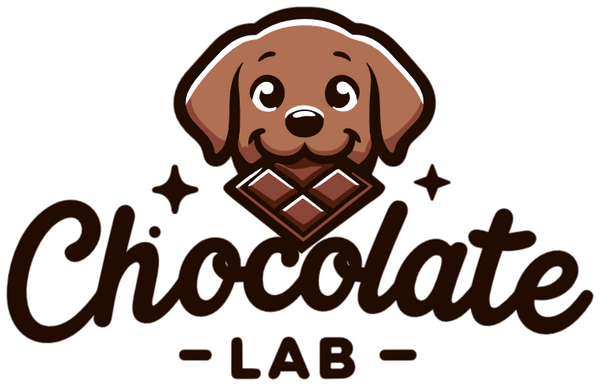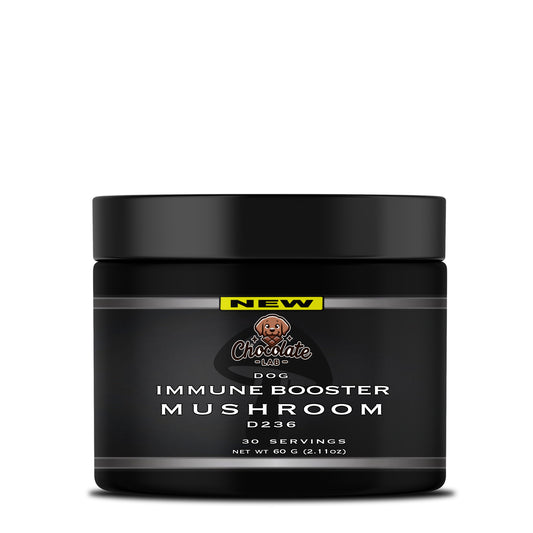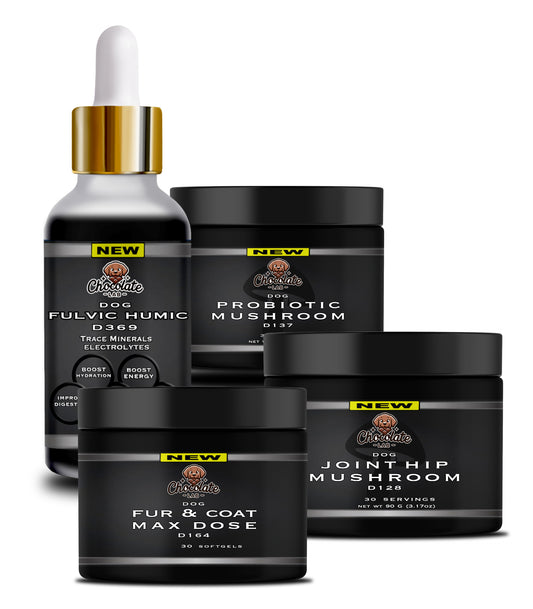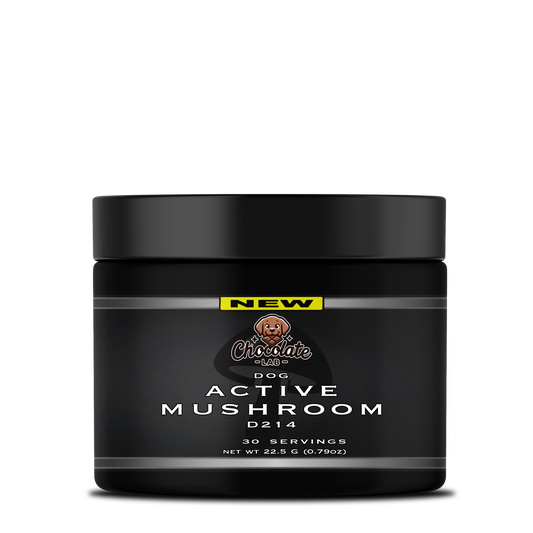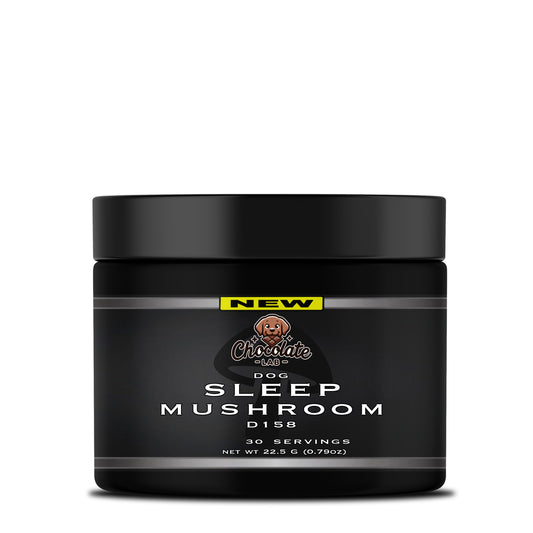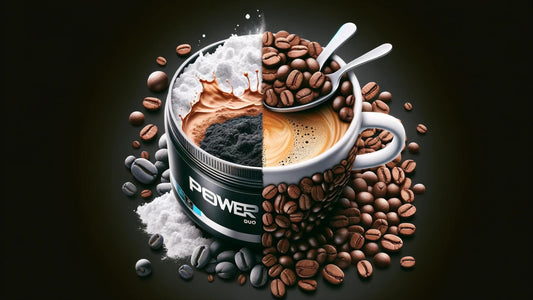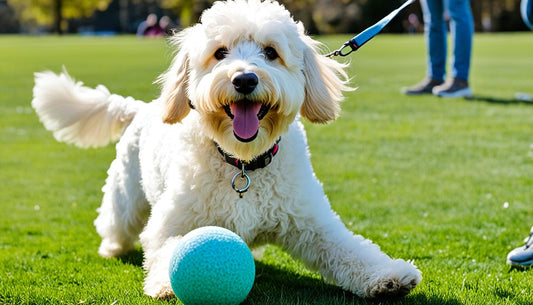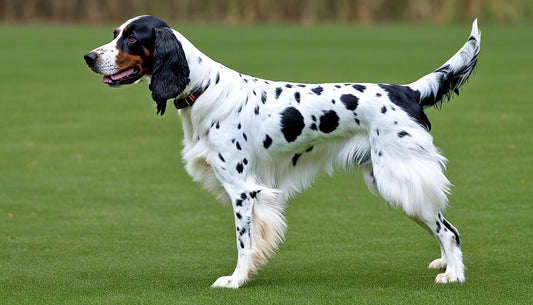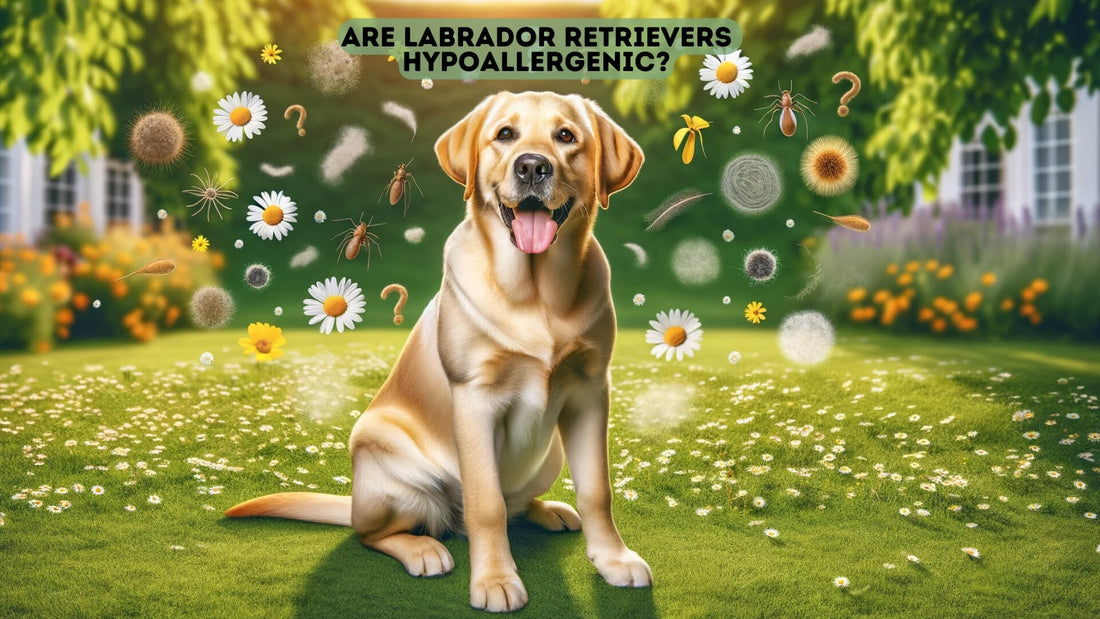
Are Labrador Retrievers Hypoallergenic? Unveiling the Mystery!
Labrador Retrievers and Allergies: A Comprehensive Guide
Published on
Updated on
Table of Contents
- Understanding Hypoallergenic Breeds
- Labrador Retriever Coat and Shedding
- Genetics and Breeding
- Managing Allergies with Labrador Retrievers
- FAQs about Labradors and Allergies
- The Ultimate Conclusion: Unveiling the Allergy-Safe Curtain on Labradors
- FAQs about Labradors and Allergies: Your Questions, Answered!
Hey there, dog lovers! 🐾 Welcome to your go-to guide on a topic that gets everyone's nose twitching—literally. We're talking about whether Labrador Retrievers and the word "hypoallergenic" can even exist in the same sentence. So, let's get to sniffin'—the facts, not the flowers!
Understanding Hypoallergenic Breeds

What is a "Hypoallergenic" Dog Anyway?
The word "hypoallergenic" sounds like some kind of superpower, right? In the dog world, it's the closest thing to wearing a cape. A hypoallergenic dog is basically the Superman or Wonder Woman of not making you sneeze, itch, or turn into a red-eyed monster. However, let's keep it real: no dog is 100% hypoallergenic. Yep, you read that right. No guarantees here, folks!
Is "Hypoallergenic" Even a Real Thing?
Okay, so the term "hypoallergenic" might not be a magical incantation to keep allergies at bay. It's more like a "kinda-sorta-maybe" than a "yes, absolutely." Sure, these dogs still have allergens but usually in smaller doses. So, think less "magic wand," more "lesser of two evils."
What's Making Me Sneeze?
You might think it's the fur, but it's not—it's actually proteins found in a dog's skin cells, saliva, or even pee that usually trigger allergies. Yep, the real culprit is often dander, those tiny flakes of skin.
Common Symptoms of Dog Allergies
- Runny nose
- Watering eyes
- Sneezy McSneezerson episodes
- Skin doing its best impression of a strawberry
🔎 Quick Tip: If you're experiencing these symptoms, an allergist can help pinpoint the culprit. They'll probably make you do a skin-prick test, which is less scary than it sounds.
🌟 Product Shoutout: If you're walking the allergy tightrope, give our Wellness Dog Mushroom Bundle a try. It helps balance your dog's gut, which could mean less sneezing for you!
Transition: Alright, let's switch gears and talk about the Labrador Retriever's fabulous fur coat!
Labrador Retriever Coat and Shedding

That Gorgeous Labrador Coat
Labradors are blessed with a double coat that's not just for looking fabulous—it actually keeps them warm and dry. But does it make you sneeze? Let's dig in!
Do Labs Shed? Spoiler: Yes!
Labs shed like it's their job, especially during "blowout" seasons (spring and fall). Imagine a snowstorm, but with fur. Yep, that's your house during shedding season.
How Much Do Labs Shed?
How many stars are there in the sky? How many grains of sand on a beach? Point is, Labs shed—a lot! You're going to need a sturdy vacuum cleaner, my friends.
Taming the Shedding Beast
- Lukewarm Baths: Think of it as a spa day for your Lab, with the added bonus of less shedding.
- Diet Change: Omega-3 fatty acids are your new best friends. Think fish oils and flaxseeds.
- Daily Brushing: Turn it into a bonding ritual. Your Lab will love you for it, and your furniture will too.
- Vacuum Like a Pro: Invest in a vacuum cleaner that's specifically designed to pick up pet hair.
📈 Let's Break It Down: How to Keep Your Sanity During Shedding Season
| Strategy | Effectiveness | Time Commitment | Insider Tips |
|---|---|---|---|
| Lukewarm Baths | High | 30-45 mins | Try a hypoallergenic shampoo |
| Diet Change | Moderate | Long-term | Always check with your vet first |
| Daily Brushing | High | 10-15 mins | Use a deshedding tool or grooming glove |
| Vacuuming | Moderate | Weekly | Get a vacuum with a pet hair attachment |
🌟 Product Shoutout: Chocolate Lab Fur & Coat Dog is like a spa treatment in a bottle. It supports skin and coat health, which can make shedding more manageable.
Transition: So now that we've tackled the hairy issue of shedding, let's dive nose-first into what exactly triggers allergies and how Labradors factor into all this sneezy business.
Genetics and Breeding

Genetic Differences Between Short-Haired and Long-Haired Labradors
So you've decided you want a Lab. But not just any Lab—a long-haired or a short-haired one, and you're curious about how that choice happens at a genetic level. The science behind this is like a daytime soap opera with less drama and more DNA.
Both types of Labradors carry a set of genes that determine their coat type. The short-haired Labradors have a pair of dominant genes (let's call them "S"), while the long-haired ones have a pair of recessive genes (let's label them "L"). When you have two "S" genes or an "S" and an "L" together, you'll get a short-haired Lab. Only when two "L" genes come together will you get the luscious locks of a long-haired Lab.
How the Specific Genes Unfold Into Their Respective Coat Types
Let's dig a bit deeper into how these genes play out. Imagine you're baking cookies. The recipe (genes) can be identical, but maybe you add a bit more sugar in one batch (long hair) and a bit less in another (short hair). You end up with two types of cookies—both delicious but distinct. That's kind of how genes work.
📝 Table: Gene Combinations for Coat Types
| Gene Combination | Coat Type |
|---|---|
| SS or SL | Short-Haired |
| LL | Long-Haired |
The Genetics Behind the Long Hair in Labradors
The long hair in Labradors is due to a mutation in the FGF5 gene. This is what gives them that flowy, glamorous coat that's more akin to a rockstar than a retriever. But remember, these long-haired Labs are still purebred; they just won the genetic lottery in the coat department.
Which is Considered the Pure Breed?
Ah, the million-dollar question. Both short-haired and long-haired Labradors are purebred, but most traditional breed standards prefer the short-haired version. However, let's not get snobby here; a Labrador is a Labrador, and both types come with a lifetime supply of wagging tails and wet-nosed kisses.
📦 Product Recommendation: To support the overall health and wellness of your Lab—be it short-haired or long-haired—our Critical Immune Defense for dogs is the go-to choice.
If you're curious to read more about Labradors and what makes them tick, you might want to check out Chocolate Lab.
Managing Allergies with Labrador Retrievers

Bathing Your Lab: Not Just for Mud Puddles Anymore!
The first line of defense against turning your home into Allergy Central is the good old-fashioned bath. We're talking regular suds-up sessions that do more than just get rid of that "Eau de Wet Dog" smell. Proper bathing can help control dander and other allergens.
Groom Like Your Life Depends On It (Because Your Comfort Kinda Does)
Grooming isn't just about making your Lab Instagram-ready; it's also a critical step in managing allergies. Brushing helps remove loose fur and dander that could otherwise find its way into your nose, eyes, or mouth. Ew, right?
Suit Up and Take it Outside
Donning gloves and grooming your dog outside can make a world of difference. Why? Because you're not letting those allergens into your home in the first place. It's like catching the villain before he even gets into the bank. Score!
Your Vacuum: The Unsung Hero
Seriously, invest in a good vacuum designed for pet owners. This isn't the place to skimp. Your vacuum can be a superhero in your anti-allergy arsenal, swooping in to suck up dander, fur, and your regrets about not cleaning sooner.
The No-Go Zones: Keep 'Em Sacred
Designate certain areas of your home—like your bedroom—as pet-free zones. This will give you a sanctuary where you can escape when your allergies flare up. Just like Superman has his Fortress of Solitude, you need your Allergy-Free Alcove.
📝 Checklist: Making Your Home Allergy-Friendly
- ✔ Weekly baths for your Lab
- ✔ Daily grooming sessions
- ✔ Gloves for grooming
- ✔ A top-notch vacuum
- ✔ Allergy-free zones in your home
🌟 Product Shoutout: If you're going all in on the grooming front, let's make it as beneficial as possible. Our alpha dog nutrition for dogs can help make your Lab's coat more manageable and may reduce dander.
📚 Related Blog: For more grooming tips that could save you from a sneeze fest, check out Are Labradoodles Hypoallergenic?
Transition: Alright, we've tackled the basics of allergy-proofing your life when a Lab is in the mix. Up next, we're answering some of your burning questions, including whether shaving your Lab is a yes or a no-go (Spoiler: It's a no-go, and we'll tell you why!).
FAQs about Labradors and Allergies

To Shave or Not to Shave: That Is the Question
A buzzed Labrador might seem like a quick fix for your allergy issues. But hold those clippers, cowboy! Shaving can actually make things worse by exposing more skin, which means—you guessed it—more dander. Plus, Labs have double coats that protect them from various elements. Shaving it off is like taking away their superpower cape. Not cool!
Lab or Labradoodle: A Fuzzy Dilemma
Here's a curveball: What about Labradoodles? They're a mix of Labradors and Poodles, and Poodles are as close to hypoallergenic as you can get. While Labradoodles are often less allergenic than purebred Labs, they're still a bit of a gamble. Allergy sufferers, roll those dice at your own risk.
Can I Build Immunity to My Dog's Allergens?
Wouldn't it be nice if you could just "level up" your immune system? While some people claim their symptoms have lessened over time, there's no scientific proof to back this up. It's more anecdotal than factual, so don't bank on it.
Medication: A Temporary Band-Aid?
Antihistamines can offer temporary relief, but they're not a long-term solution. Plus, do you really want to pop pills every time you cuddle with your pup? Didn't think so.
I'm Allergic but in Love with Labs: What Now?
Hey, love conquers all, right? If you're smitten with the Labrador breed but are allergic, your best bet is to combine several allergy management strategies. Think air purifiers, regular grooming, and maybe even allergy shots.
📋 Quick Table: Allergy Management Techniques
| Technique | Effectiveness | Commitment Level | Notes |
|---|---|---|---|
| Regular Grooming | High | Weekly | Use hypoallergenic shampoos |
| Air Purifiers | Moderate to High | One-time | Look for HEPA filters |
| Allergy Shots | Varies | Long-term | Consult your allergist |
| Antihistamines | Temporary | As needed | Not a long-term solution |
🌟 Product Shoutout: For those committed to the Labrador life, come rain, shine, or sniffles, we recommend our Active Dog Mushroom Bundle. These enzymes can help improve your Lab's skin condition, potentially leading to less dander.
📚 Related Blog: Have more questions? Check out our all-encompassing guide Labrador Retriever Puppies for even more insights.
Transition: So there you have it, answers to some FAQs that've been bugging you (or should I say, making you bug-eyed with allergies?). Next, we're pulling it all together in a neat little bow with our conclusion. You won't want to miss it!
The Ultimate Conclusion: Unveiling the Allergy-Safe Curtain on Labradors

Let's Drop the Mic: The Unvarnished Truth About Labradors and Hypoallergenic Dreams
Okay, folks, let's pull off the band-aid: Labradors are as hypoallergenic as I am a world-class opera singer (Spoiler: I can't sing). No matter how much we wish for it, no amount of fairy dust is going to make your Lab hypoallergenic. They might win your heart with those adorable eyes and playful antics, but they sure as heck won't win any 'Least Likely to Cause Sneezes' awards. They're the full package—love, loyalty, and, yes, a sprinkle of allergens. But don't let that dash your dreams just yet.
The Heart Wants What It Wants, But What About Your Sinuses?
Listen, I get it. Those droopy eyes, that wagging tail, the way they snuggle up to you like you're the best thing since sliced bread—it's hard to resist. But this is a long-term relationship we're talking about. You wouldn't marry someone without knowing if they snore like a freight train, right? Same goes for your future fur-baby. Consider doing a 'test run,' perhaps fostering or spending extended periods with a Lab. It's like dating before putting a ring on it, but with more fur and fewer dinner bills.
The Allergy Gamble: What Are You Willing to Bet?
So let's say you're still smitten and you're ready to bet the farm (or at least the antihistamines) on a Lab. That's cool, but know what you're getting into. There's going to be some maintenance involved. Like, "I now have a standing appointment with my vacuum cleaner" level of maintenance.
📋 Quick Checklist: Prepping Your Life for a Labrador Love Affair
- ✔ Vet-approved, hypoallergenic dog shampoo
- ✔ A high-efficiency vacuum cleaner with pet attachments
- ✔ Air purifiers strategically placed around the house
- ✔ A no-dog-allowed sanctuary room for allergy escapes
🌟 Product Shoutout: If you're walking down this pollen-laden path, eyes wide open, let me hand you an umbrella. Our Fulvic Humic Dog can be a game-changer. A healthier pup could mean fewer allergens in your life.
📚 Related Blog: Still on the fence? Let's give you a nudge. Visit our blog, Chocolate Lab Names for the ABCs of what life with a Lab really entails, sneezes and all.
The Final Bow: What's the Verdict?
So here we are, at the end of this allergy-infused saga. You're now armed with more knowledge about Labradors and allergies than you probably ever wished for. The question is, what are you going to do about it? If you're still all-in, awesome! Just be prepared for a life that includes some sniffles along with the cuddles. If not, that's cool too. There are plenty of fish (or dogs) in the sea that might be a better fit for your lifestyle.
FAQs about Labradors and Allergies: Your Questions, Answered!

What does it mean for a dog breed to be hypoallergenic?
"Hypoallergenic" means that the dog breed is less likely to cause an allergic reaction compared to other breeds. However, it's crucial to understand that no dog is 100% hypoallergenic.
Is it the dog's fur or dander that causes allergic reactions in people?
It's a common misconception that fur is the culprit. In reality, it's the dander, or skin flakes, as well as saliva and urine, that most often cause allergic reactions.
What is dander, and why is it a problem for people with allergies?
Dander is composed of tiny, even microscopic, flecks of skin shed by cats, dogs, rodents, birds, and other animals. These particles can contain proteins that trigger allergies and aggravate asthma in some people.
Are there any breeds of dogs that are completely hypoallergenic?
No breed is completely hypoallergenic. Some breeds are labeled "hypoallergenic" because they produce fewer allergens than others, but they can still trigger allergies.
Are there any dogs that are better for people with allergies than others?
Yes, certain breeds like Poodles, Schnauzers, and Bichon Frises are often recommended for allergy sufferers due to their coat type and lower dander production.
Can Labs be groomed to reduce the amount of dander they produce?
While grooming can't eliminate dander, it can certainly help manage it. Regular baths and brushing can reduce the amount of loose dander.
Can people with dog allergies develop immunity over time?
While some people claim their allergy symptoms have lessened over time, there's no definitive scientific evidence to support this notion.
Are there any medications that can help alleviate dog allergy symptoms?
Over-the-counter antihistamines like Benadryl can provide temporary relief, but they're not a long-term solution. Consult your healthcare provider for personalized advice.
What should someone with allergies do if they want to adopt a Lab?
If you're set on a Lab, it's essential to prepare your home and lifestyle for allergy management. Regular grooming, specialized cleaning equipment, and possibly even medication are things to consider.
What are some other breeds of dogs that are good for people with allergies?
If Labs are out of the question due to allergies, other breeds to consider are Poodles, Portuguese Water Dogs, and Soft-Coated Wheaten Terriers, among others.
